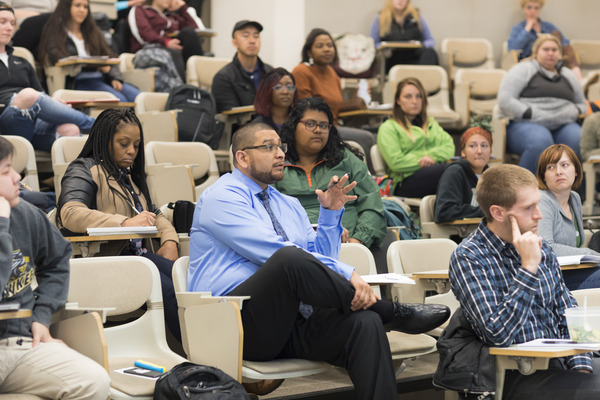Careers in the Classroom
Infusing career and professional development content into course curriculum
Career development in the classroom enriches students’ learning experience and increases their commitment to the course or major. It also supports student retention and increases their understanding of the connection between majors and careers. This, in turn, motivates students to develop academic and career goals, while enhancing their ability to communicate their strengths as they transition into the workforce or graduate school.
We encourage you to contact us to discuss ideas for integrating career content into your course as well as how we can support you in achieving your objectives. Email us at careerplan@uwm.edu.
If you are assigning activities that require students to visit our office, please notify us so we can prepare for time periods of increased traffic and preserve the level of customer service that students deserve and expect of SET.
Examples of Careers in the Classroom

- Develop a resume and cover letter geared toward an internship or full-time job in their field.
- Visit SET drop-in hours to discuss their career goals or have their resume critiqued.
- Complete MyPlan Assessments and write a reflection paper on their results.
- Interview a professional in a job they are interested in and present their findings to the class.
- Learn about interview strategies through websites and videos and then perform mock interviews in class.
- Attend a UWM career fair, workshop, or special event for extra credit.
